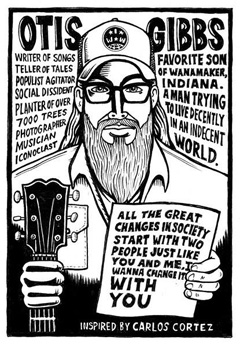Dateline Bogota: “Spain’s government is investigating links between the Basque separatist organisation Eta and Colombian Farc rebels.”
Dateline Madrid: “A businessman has been shot dead outside a restaurant in Azpeitia, northern Spain. Spanish police say they suspect the Basque separatist group Eta is behind the killing.”
Three obviously linked stories from three different international news sources in the past few days. The link? The missing word “terrorist”.
For some reason, whenever Eta is mentioned the word mutates into “separatist”.
This is not a new phenomenon. It’s been going on for years. I don’t remember the news media ever referring to the IRA that way, yet Eta’s aims and methods are pretty much identical to those of the old Irish “terrorists”. So why the different terminology?
Of course it’s hardly new to point out that one man’s terrorist is another’s freedom-fighter. Which way you choose to describe violent Palestinians, for example, depends on your view of the whole Middle-East question.
But when and why the world’s news editors all agreed to extend courtesy titles to murderous Basques but not to other similar gangs I neither know nor understand.
Now take Mumbai. A scan of news coverage around the world last week shows that the word “terrorists” was applied to the horrific events in the Indian city. But nothing like as often as the words “attackers”, “militants” or even “fanatics”. In the early stages, while the crisis was still going on, they were “gunmen” and “hostage-takers”.
I wouldn’t begin to guess why this might be. Especially as the killers have been identified with Lashkar-e-Taiba, or “Army of the Pure”, a Pakistani “militant group” whose aims for Kashmir are similar to Eta’s aims for the Basque region – or the IRA’s for Ireland. And whose methods have included attacks on India’s parliament and, even more foully, on an amusement park in Hyderabad.
The attack on the parliament building in New Delhi in 2001 nearly brought India and Pakistan to war, which was almost certainly the intention. The bombings in Hyderabad last year killed 42 people including a number of children.
Another 19 bombs placed around the city were found and defused. They had been placed at bus stops, by cinemas, road junctions and pedestrian bridges and near a public fountain.
The explosives were there to kill not specific individuals but random victims. The bombers almost certainly didn’t care that they didn’t all go off, as long as some did.
There can only be one motive for such acts. That is to spread fear among ordinary people. Fear disproportionate to the actual risk of death or injury. In other words, terror.
Since 2004 India has lost more lives to terrorist incidents than all of North America, South America, Central America, Europe and Eurasia put together.
Yet outside India itself, the killers in the Taj Mahal Hotel and the Mumbai Jewish Centre are still “gunmen”, not “terrorists”.
It seems wrong. And yet.
I wonder whether there might be some sense in removing the word “terrorist” from all reporting not just of Eta and the Mumbai atrocities, but all such groups and events.
I wonder if to the perpetrators and their supporters the very word glamorises them. If it gives them some twisted sense of legitimacy. Whether, in fact, it assists them in their goal of spreading terror.
I am certain the ill-perceived, vague and self-perpetuating “War on Terror” has had all those undesirable effects.
If each of us carried a gun…
POSSIBLY the most idiotic public response to the Mumbai killings was an article in a Sunday paper by one Richard Munday.
Why they gave an old gun-nut prime space to ride his hobby-horse I don’t know. But his piece this weekend has certainly caused more stir than either of his out-of-print 1996 pamphlets “Most Armed and Most Free” and “Guns and Violence”.
His argument is well summed up by the headline: “If each of us carried a gun… we could help to combat terrorism”.
Whether turning the Mumbai hotels into mass shootout scenes would actually have saved lives is a moot point. One we will (probably fortunately) never be able to answer.
Arming the citizenry would have made no difference in Hyderabad, 9/11 or Bali. Or virtually any other terrorist event I can think of.
But it would make me a hell of a lot more scared around town of a Friday night. Or any place where young males and alcohol mix.
What if every rioter in Athens this week had carried a handgun? Every West Ham fan? Or every late-night lout who turns up in A&E?
As the police rightly point out, carrying a knife makes you more likely to be stabbed. And carrying a gun? No thanks.

 And, like Steve Earle, he is deeply committed to the kind of decent human values that aren’t common to all in his native Indiana. Though, as he proudly informed us, Indiana broke with long tradition this year by voting for a smart and decent man – Barack Obama.
And, like Steve Earle, he is deeply committed to the kind of decent human values that aren’t common to all in his native Indiana. Though, as he proudly informed us, Indiana broke with long tradition this year by voting for a smart and decent man – Barack Obama.